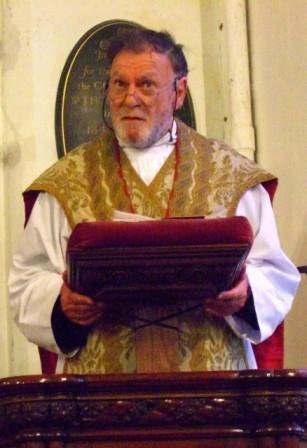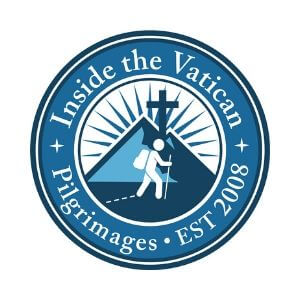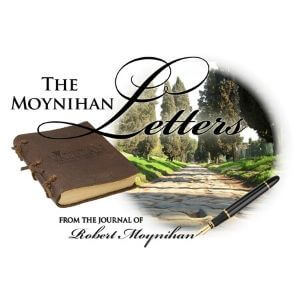
Fr John Hunwicke, a convert from Anglicanism who was ordained a Catholic priest in 2012, taught for nearly three decades at Lancing College, teaching Latin and Greek language and literature. He was also Head of Theology, and Assistant Chaplain. He has served three curacies, been a Parish Priest, and Senior Research Fellow at Pusey House in Oxford. Since 2011, he has been in full communion with the See of St. Peter. The opinions expressed in his blog are not asserted as being those of the Magisterium of the Church, but as the writer’s opinions as a private individual. Nevertheless, the writer strives, hopes, and prays that the views he expresses are conformable with and supportive of the Magisterium. (from Hunwicke’s blog)
“There have been some meetings in Rome in which a call has been made for ‘Rome’ to reconsider the matter of Anglican Orders… this initiative is probably an oblique move to subvert the Church’s teaching on the impossibility of women validly receiving the Sacrament of Order.” —Fr. John Hunwicke, an English Catholic priest, writing in his blog two weeks ago, on December 20, 2021 (link, text below; see also this link)
“Because, believe me, if Rome were suddenly to say ‘OK; we accept male Anglican priests’ the discrimination involved in this would cause a great wave of anti-Roman animus in Anglicanism which would trump even the anti-Romanism of the 1500s.” —Ibid.
“Although the teaching that priestly ordination is to be reserved to men alone has been preserved by the constant and universal Tradition of the Church and firmly taught by the Magisterium in its more recent documents, at the present time in some places it is nonetheless considered still open to debate, or the Church’s judgment that women are not to be admitted to ordination is considered to have a merely disciplinary force. Wherefore, in order that all doubt may be removed regarding a matter of great importance, a matter which pertains to the Church’s divine constitution itself, in virtue of my ministry of confirming the brethren (cf. Lk 22:32) I declare that the Church has no authority whatsoever to confer priestly ordination on women and that this judgment is to be definitively held by all the Church’s faithful.” —St. John Paul II, Ordinatio Sacerdotalis, May 22, 1994 (link)
Letter #4, 2022, Monday, January 3: Anglicans
A thoughtful Catholic priest in England has recently written a useful and thus important blog piece on the issue of the validity of Anglican orders, dated December 20, 2021. (link)
This author, Fr. John Hunwicke, gives us a valuable clue to the possible (he calls it “probable“) reason for the recent renewal of discussion on this topic in Rome, terming it “probably an oblique move to subvert the Church’s teaching on the impossibility of women validly receiving the Sacrament of Order.”
In other words, the real goal of some in Rome, in Hunwicke’s opinion, is for Rome to move toward approval of the ordination of women priests.
He explains it this way: since women have been ordained in the Church of England for several decades, if Rome were now to move to “recognize” the validity of Anglican priestly ordinations, the ordinations of those women would either have to be accepted (which Pope John Paul II said is not something the Catholic Church can do), or, if the male priests are accepted but not the female, then Rome would receive terrific criticism in the Anglican world. (In which case, feeling enormous pressure to avoid such ferocious criticism, Rome might possibly be prompted to reject what John Paul said was not rejectable, and accept women Anglican priests.)
All of this is taking place within a still larger context: that of a general movement among certain circles in Rome and in the Church today to lay a basis for a united Christian Church in which a number of traditional beliefs would be set aside in order to bring about “one Church.”
But true unity in the Church cannot be brought about by abandoning traditional doctrines and beliefs. The Church is by definition “one, holy, catholic and apostolic,” so all four marks of the Church must be maintained: one, holy, catholic, apostolic… and “apostolic” means holding fast to what the apostles handed down, so to remain herself the Church must do that.
So we thought readers might appreciate reading Hunwicke’s post. (The red and blue coloring of the words is in the original post.)—RM
20 December 2021
Anglican Orders
By Fr. John Hunwicke
Since there have been some meetings in Rome in which a call has been made for ‘Rome’ to reconsider the matter of Anglican Orders, perhaps I might offer one or two remarks.
Firstly: I suspect the motives of those involved. Possibly, some of them hope to set aside the negative judgement of S John Paul about the ‘ordination’ of women. Because, believe me, if Rome were suddenly to say “OK; we accept male Anglican priests” the discrimination involved in this would cause a great wave of anti-Roman animus in Anglicanism which would trump even the anti-Romanism of the 1500s.
So this initiative is probably an oblique move to subvert the Church’s teaching on the impossibility of women validly receiving the Sacrament of Order.
Secondly: since Anglicans officially (see below) accept the equivalence of their ministries with those of the Protestant ecclesial bodies, it would be illogical for the Catholic Church to accept Anglican Orders while continuing to reject the ministries of Protestant ecclesial bodies.
So this initiative is probably an oblique way of subverting the entire teaching of the Catholic Tradition on the Sacrament of Holy Order.
Thirdly: We need to recall exactly where we currently are in regard to Anglican Orders.
(1) It was the view of Pope Leo XIII that Anglican Orders were null and void, in the sense that they were not identical with the sacerdotal Orders which the Church considers herself to inherit from the Apostles. That is still the official juridical view of the Catholic Church.
(2) What is often not noticed is that this is also now the view of the Church of England. Since the 1990s, the Church of England has entered into formal relationships with ecclesial bodies which undoubtedly lack Catholic Orders. The ‘Porvoo‘ arrangement inserts her into the Porvoo Communion in which, even where there is a quasi-episcopal structure, that ‘episcopate’, in Norway and Denmark, can make no claim to Apostolic Succession (as Professor Tighe has demonstrated, the same is almost certainly true even of the Swedish Church, of which more optimistic judgements had previously been officially made by the Church of England). And ordinations in Scandinavia are not exclusively performed by Bishops (but sometimes by cathedral deans). (It is also worth looking at the published text of the Anglican-Methodist Covenant, in which, instead of even a perfunctory attempt to show that the Methodists believe the same as Anglicans about Holy Order, there is … believe it or not!! … a cheerful assurance for Methodists that Anglicans don’t believe anything different from what Methodist legal documents teach in their careful repudiation of a sacerdotal priesthood!)
(3) Faced with a very similar threat in the 1940s (at that time, the threat was posed by the ‘CSI’, a proposed pan-Protestant body called the Church of South India), Dom Gregory Dix, a robust defender of the validity of Anglican Orders, wrote: “As regards the question of Orders, what these proposals amount to is an official Anglican admission that Pope Leo XIII was right after all in his fundamental contention in Apostolicae Curae. In spite of face-saving phrases about ‘the Apostolic Ministry’ and the future confining of the act of Ordaining to men styled ‘Bishops’ [in fact, the Porvoo Scandinavians did not even undertake this], we would be committed to a formal declaration that by ‘Bishops, Priests, and Deacons’ could be meant only the new sixteenth-century conception of the Ministry disguised under the old titles … And, whether we like it or not, that would be to justify Leo XIII in the teeth of all our own past history. Thus, if these proposals were to be put into practice, the whole ground for believing in the Church of England which I have outlined would have ceased to exist … ”
(4) The other major Anglican theologian who mounted a persuasive defence of Anglican Orders was Dr. Eric Mascall. He wrote: “When the preface to the Anglican ordinal declared that its purpose was the continuation of the threefold ministry which had existed ‘from the Apostles’ time’, it was pointing to a concrete recognisable entity … there was a lot to be said for avoiding theoretical statements … and for pointing instead to the concrete reality which it was intended to perpetuate … To the question ‘what does ordination effect?’ the fundamental answer is given … by pointing to priests. … defining it by telling you where it is and inviting you to go and look at it.”
Well, the Church of England has, since the 1990s, certainly made quite a business of pointing to concrete realities and defining her views on priesthood by telling us where it is and inviting us to go and look at it. And where her formal, synodical pointing finger points to is to Denmark and Norway and Sweden.
(5) But Scandinavia is a long, long, long way … well, perhaps not so very far away. But Scotland is undoubtedly even closer. And the “Columba agreement” … We all know how “Columba” will end: another of these concordats the essential meaning of which will be that Anglican priests are identical to Protestant ministers; that an ecclesial body without an episcopal polity is no less “Church” than a body that thinks it has one. The Church of England has been saying this, ever more often, with greater force, and with regard to geographically closer or more significant bodies, ever since the poor little Jerusalem Bishopric so upset S John Henry Newman … through South India in the 1950s … and Scandinavia in the 1990s. How many times does the C of E have to say the same thing before those of its members who call themselves “Catholics” realise that it really does mean what it keeps on and on saying?
Porvoo, not the ordination of women, was the point at which I realised that the Church of England was not a body in which I could have a permanent home; after that, the practical question was simply how to get out, acting corporately rather than as an individual; a question so graciously answered by Benedict XVI.
The Church of England officially agrees with the judgment that Leo XIII made, that its orders are no different from the orders of all the Protestant bodies. Those who retain a Catholic doctrine of Holy Order, and still remain in the Church of England, can only do so by saying that the Church of England, and Leo XIII, were both wrong; and that “I understand Catholic teaching about Sacramental validity better than did Leo XIII; and, although the C of E says that its ministry is equivalent to Protestant ministries, I know better.”
Logically tenable … but what a very uncomfortably ego contra mundum position to hold! I know, because I’ve been there.
[End, Fr. Hunwicke’s blog post]
Our Work: An Overview
We ask you to support Urbi et Orbi Communications with a small or large contribution, at this difficult time, in order…
(1) to keep Inside the Vatican Magazine (which we have published since its founding in 1993, more than 28 years ago) independent and comprehensive… Now available to you digitally as well as in print! Now offering Virtual Events, ITV Writer’s Chat and Reader’s Chat!
(2) to ensure that Inside the Vatican Pilgrimages can keep creating encounters.
(3) to help bring the Catholic Church and the Orthodox Churches closer together by “building bridges” through our non-profit Urbi et Orbi Communications.
(4) to sustain our occasional news and analysis emails, The Moynihan Letters, bringing valuable information and insight to thousands of readers around the world.
Please, do not overlook this opportunity to work with us. We very much appreciate your gift, whether small or large.
Thank you.
In Christ,

Dr. Robert Moynihan and the rest of the Urbi et Orbi Team










Facebook Comments